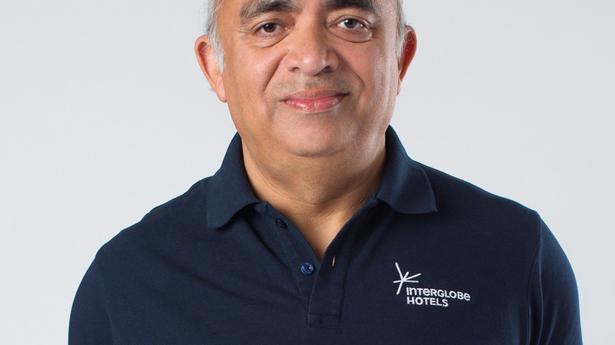
Hospitality norms, policies require reworking, rationalisation, says InterGlobe Hotels’ J.B. Singh
Existing policy around building hotels and use of land is extremely inefficient, he says
Existing policy around building hotels and use of land is extremely inefficient, he says
India needs to rework its hospitality policy, especially rationalise norms around building hotels, to further grow and unleash the full potential of a sector that comprises a bouquet of businesses such as tourism, travel, hotel accommodation, food and beverages, entertainment/sports and MICE tourism, said J.B.Singh, president & CEO, Interglobe Hotels, the hospitality arm of InterGlobe Enterprises, a group that operates hotel chain ibis and airline IndiGo.
“There is an urgent need to rework hospitality policy as existing policy around building hotels and use of land is extremely inefficient. The way the set back norms work, the height versus set back ratio and the way FSI works, all need to be reclarified and reworked for the industry to improve,” Mr. Singh said.
Under existing norms, economy (or budget) hotels are mandated to build massive car parks that often go underutilised or unused. “There is an urgent need to rationalise these policies to make our investments more efficient. This is something that the government has to, in consultation with the industry, work on,” he insisted.
Elaborating on the current mismatch, he said corporate buildings, residential constructions and hotel properties couldn’t be compared. Hotels were here only to sell rooms on rentals, they were not realising the FSI through selling real estate.
“We are asked to build car parks that are disproportionate. Guidelines around parking norms vary from municipality to municipality. Unfortunately, economy hotels are asked to provide more car parks, compared to luxury hotels. This makes no sense, when budget hotels don’t have banqueting and not enough cars coming in. This is a massive mismatch,” he explained.
According to Mr. Singh, another major issue that had been hurting the hospitality sector was the incredibly high liquor licence cost in the country.
For instance, he explained, in Bangkok, a liquor licence costs some 1,000 Baht which is about ₹2,000, and one licence will allow a hotel to open 4 liquor vends in the building. Whereas in India, liquor licences cost between ₹20 lakh and ₹45 lakh per annum, and each vend requires a separate licence, he pointed out.
“Huge licence cost makes liquor in hotels very expensive making it unaffordable for guests. It eventually creates a counterproductive scenario. The licence fee should be linked to a hotels’ earnings from liquor to make it viable.” he added.
Stay connected with us on social media platform for instant update click here to join our Twitter, & Facebook
We are now on Telegram. Click here to join our channel (@TechiUpdate) and stay updated with the latest Technology headlines.
For all the latest Education News Click Here
For the latest news and updates, follow us on Google News.

